Stuart Aken's Blog, page 291
September 4, 2011
Stuart's Daily Word Spot: Partly or partially?
 Image via Wikipedia
Image via WikipediaPartly or partially? Partly:adverb - as a part of, in part; notwholly, but to some extent. Partially:adverb - to some extent, partly, inpart, not completely; biased, partial, unfair, unjust; (now a rare usage) -with special affection or favour.
Yetanother English pairing which excites some into defending the use of oneagainst the other, when, in most respects, they're interchangeable.
Ifyou're discussing something that's not complete, you can use either. Only ifyou're talking about preference, justice, fairness etc., do you need to becertain to use 'partially'. Think of its antonym, 'impartial', which means'neutral' and it should help avoid any confusion.
So:'Theleg of the buried body was partly exposed when Genevieve's dog dug around themound in the forest.'
'Genevieve'sleg was partially exposed when Gordon shifted the sheet before he slipped inbeside her.'
But:'Thejudge treated Mary partially, giving her a non-custodial sentence when sheflashed her most inviting and provocative smile at him.'
5 September 1946 Queen singer, Freddie Mercury was born: sobering tothink that, had he live, he would have been 65 and therefore an old agepensioner today.

Published on September 04, 2011 23:00
Author Interview with Adrian Dawson.
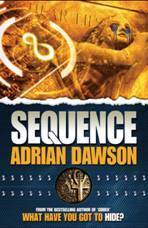 Born in Yorkshire, England in 1971, Adrian Dawson'sprofessional career has spanned design, illustration and animation and he isnow Creative Director at a UK Creative Advertising Agency. Adrian's firstnovel, Codex, was accepted in 1999 bythe first agency he sent it to – at the time, the same agency as J.K. Rowling -but they were unable to place it. After many years of trying to place Codex, it was ultimately taken on byLast Passage and became the Number One Best Selling Thriller Novel on the UKiBookstore of 2010.
Born in Yorkshire, England in 1971, Adrian Dawson'sprofessional career has spanned design, illustration and animation and he isnow Creative Director at a UK Creative Advertising Agency. Adrian's firstnovel, Codex, was accepted in 1999 bythe first agency he sent it to – at the time, the same agency as J.K. Rowling -but they were unable to place it. After many years of trying to place Codex, it was ultimately taken on byLast Passage and became the Number One Best Selling Thriller Novel on the UKiBookstore of 2010.Hello, Adrian; your latest book is Sequence; perhaps you'd give us someinsight into it in a few sentences?
Sequence is a bookset in two distinct timeframes. One story progresses day by day whilst anotherjumps forward a few years at a time, ultimately landing in 2043. How and whythose two stories converge is extremely shocking. If it's true, it could changethe face of the planet forever.
How did you come to write this particular book?
I was a little annoyed that 'Time Travel' had such a badrep., even when covered by well respected authors such as Michael Crichton. Igot to thinking that I wanted to write a time travel novel in which the sciencewas accurate, the consequences were real and the whole thing held an air ofpossibility. More importantly, I wanted to write a novel in which, despite timetravel, not one single event in the past could be changed. Then ask the question…so why bother? The answer may surprise quite a few people.
Do you have a favourite character from the book? If so, who and whythis particular one?
One of the 'lesser' characters in the novel is Tina. She isautistic, mute and phenomenally intelligent. She can't communicate with othersnot because she is on a lower plane but because she is on a higher one. For thebulk of the novel she is who she is and perhaps seems a little like abackground character. Through a devastating event toward the end of the novelshe becomes the key to everything that is happening and I feel for her. I didwhen I wrote her and I do now.
Where can people buy your books?
Waterstone's, WHSmith, Amazon, iBookstore. All the usualplaces, really. "Available from all good Bookstores. And some bad ones! ;0)"
What qualities does a writer need to be successful?
Luck. When Codex was first rejected by publishers in 1999 itwas because it was deemed to be too 'millenial'. Then, from mid 2000 (Angels& Demons) onwards everyone was saying that it was a bit 'Dan Brown' andnone of the big publishers would touch it. In 2010 I had a lot of officialreviews saying that it was 'like Dan Brown but better'. If, in 1999, someonehad seen its potential it could have had an almost Dan Brown like level ofsuccess. Maybe.
What's your working method?
Index cards. I start with the ending first, and then ensurethat everything tapers towards that point. I have one index card for every chapter with all the major events listedout. I need to do this to ensure that every piece of the puzzle arrives on timeand fits where it should. Then I walk the dogs, write the chapter in my head,come home and commit it to paper.
What's the single biggest mistake made by beginner writers?
I've never copied anyone else, but the years of peoplethinking that Codex was copying Dan Brown when it was written years earlier hastaught me that bandwagons don't take you anywhere nice. I see a lot of peoplewho want to write copying plots, styles or characters from the big sellers.Don't. Write what you want to write, how you want to write it. We need morerule-breakers coming through.
To what extent are grammar and spelling important in writing?
In the novel itself, hugely. In the way characters speak ornarrate not at all. People use bad grammar in real life and realism comes fromreflecting that. I'm very careful with my speeling though.
How much do you revise your MS before sending it off?
I have a period where I read a chapter at a time, walk thedogs again and mull it over, then I have a period where I open the MS at randomand tweak. This lasts a few weeks usually.
As a writer of Thriller fiction, to what extent do you think genre isuseful in the publishing world?
I'm not a 'literary' writer, and yet one well known reviewersaid of Codex: "The prose is a joy to behold in the early chapters as theauthor exercises his literary muscle and produces some of the best craftedsentences I have read this year." To me, genre is irrelevant. Genre is what abook is about, not what a writer is about. Genre is the flimsiest of tagsdesigned to help place things on shelves.
Many authors see marketing as a bind. What's your opinion on this, andhow do you deal with it?
I'm a Creative Director at an Advertising Agency so I findit very hard to turn over my publicity to others. On the plus side, it meansthat I have the skills to program and control my own web presence. For the mostpart, however, I find it a bind. That iswith the exception of Book signings. Ilove meeting readers, and talking about the plot of the novel, or the sciencebehind the story.
What sort of displacement activities keep you from writing?
Anything. Everything. My writing covers a wide range ofsubjects because I'm into so many things. I then find it hard to get down toactual writing because I'm into so many things.
What support, if any, do you receive from family and friends, writinggroup, or dedicated professionals?
My three stand-outs are my girlfriend who checks everythingI write and then annoys me by finding things I'd missed because I was inmid-flow. Then there are two local guys, one in his seventies who is a novelisthimself and one who runs the Nottingham Writer's Studio and is working on hisfirst novel. The three of them offer all the help, advice, encouragement andcorrections I could ever need.
Is presentation of the MS as important as agents and publisherssuggest?
Not at all, as long as it's legible. I'm sure that a lot ofexciting and unconventional writers have been lost in the slush pile over theyears because their submissions followed rules that they were told to followand their unconventional nature was lost along the way.
How long does it take you to write a novel?
I have three on the go at the moment – [Sequoia] which is the follow-up to Sequence, plus Memory andRemote. I only write one at a timewhilst I research and plot the others but it means that by the time I settledown to write, say, Memory it will be a couple of months at most.
Who or what inspires your writing?
Every strange event I've ever read about, every strange factI ever learned and, more importantly, every strange person I've ever met.
If there's a single aspect of writing you find frustrating, what is it?
Finding the final piece of some very complex jigsaw.
Is there a particular feature of writing that you really enjoy?
Finding the final piece of some very complex jigsaw.
Do you believe creative writing is a natural gift or an acquired skill?
The gift is wanting to write and the wanting to write meansthat you do write which, ultimately, makes you better at it.
What are you writing now?
I've not looked back through all the other interviews, but Iguess that the #1 answer to this question is '…these answers'. (SA – in fact, that has never been the answer)Apart from that, I'm working on [Sequoia]which is immensely rewarding because I'm trying to combine the most accurateforecast of what 2043AD might be like with the most accurate portrayal I canmuster of 1645AD. In case you were wondering, they're both dirty, horrible,wretched places to be.
Do you have a website or blog where readers can visit?
www.adriandawson.co.uk- there's a little bit of something on there for everyone from my dailyramblings, to research, to current promotions (there's a fantastic competitionrunning in conjunction with Sequence to locate and find some treasure!) and ofcourse sample chapters of both Codexand Sequence.
Given unlimited resources, where would you do your writing?
Anywhere with a stunning view and an MP3 player.
Where do you actually write?
I write in detail in my head, almost 24/7, but the actualstenography happens in many different places. When I first write a chapter Ilike to be at my desk as I have a Mac Pro with two 30" screens and I have theresearch occupying all available screen real estate. When I tweak chapters thatcan happen almost anywhere: at my desk, Macbook Pro on my sofa, iPad on thetrain. Often I have conversations between characters in my head whilst I'm outand about and by the time I get home, ten minutes will have that conversationadded to the novel.
Adrian is hosting a Twitter Book Club tonight between 8 and 9 o'clock (BST). If you want to get involved, please use the hashtag #Sequence; the link is http://www.adriandawson.co.uk/index.php/categoryblog/273-twittersequence.htm
Published on September 04, 2011 00:30
September 3, 2011
Stuart's Daily Word Spot: Ugh!
 Image via Wikipedia
Image via WikipediaUgh! – exclamatory expression generally describing shockeddisgust. But often exposing the prejudices of the exclaimer.
'Ugh! What does she look like?'
'That smell is disgusting. Ugh! I don't know how you canlive so close to the sewage works.'
Q: 'Socks with sandals? Ugh! Have you no fashion sense?' A: 'Actually, I find the combination keeps my feet at justthe right temperature, and, frankly, I couldn't care less about the opinion ofsomeone so clearly ruled by irrational prejudice.'

Published on September 03, 2011 23:00
September 2, 2011
Stuart's Daily Word Spot: Taditkara
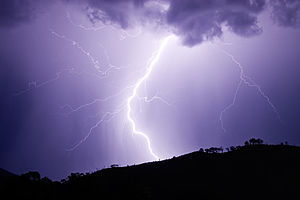 Image via Wikipedia
Image via WikipediaTaditkara: One of my occasional 'god' spots, designed toshow those who think theirs is the only deity (OMG, you mean He isn't?) thatthere are, in fact, almost as many gods and goddesses worshipped as there are prejudicesamongst those poor deluded individuals who've been brain-washed, in all areas.(Complex sentence! I really should rephrase it, but I somehow can't find themotivation).
Taditkara is, so it would seem, a Buddhist goddess of light.Generally associated with the colour green and with lightning, her attributestake lightning in the form of a creeper. What, exactly, one is supposed to takefrom this, I've no idea. Is this worship of lightning, green or creepers? Or isthis unimportant deity merely a personification of these qualities? I believethat polytheism is as valid as monotheism (i.e. invalid) and has the advantagefor those convinced by it that there is more than one being to blame whenthings go wrong. Such appears to be the nature of the human being: we seem toneed someone to accuse when natural events occur.

Published on September 02, 2011 23:00
Stuart's Daily Word Spot: Parallelism
 Parallelism: noun – literally and figuratively, thestate, character or position of being parallel; a parallel case, passage; Correspondencein sense or construction of successive passages; a passage exemplifying this; thestate of keeping to the same direction; in Psychology, the belief in a correlationbetween mental phenomena and physical events in the brain; in Biology, thedevelopment of similar characteristics by two related groups of animals orplants responding to similar environmental pressures; in Anthropology, similarity between the evolution and achievementsof different cultures; in Computing, the execution of operations concurrentlyby separate parts of a computer, e.g. separate microprocessors, the ability tooperate in this way.
Parallelism: noun – literally and figuratively, thestate, character or position of being parallel; a parallel case, passage; Correspondencein sense or construction of successive passages; a passage exemplifying this; thestate of keeping to the same direction; in Psychology, the belief in a correlationbetween mental phenomena and physical events in the brain; in Biology, thedevelopment of similar characteristics by two related groups of animals orplants responding to similar environmental pressures; in Anthropology, similarity between the evolution and achievementsof different cultures; in Computing, the execution of operations concurrentlyby separate parts of a computer, e.g. separate microprocessors, the ability tooperate in this way. However, as awriter, my interest in this rests on a specific application; i.e. its relevanceto the use of bullet points:
So frequentlypassages of information are reduced to bullet points as a way of simplifyingthe presentation and aiding assimilation. But if the sets of points are notconstructed using parallelism, the result is one of confusion rather than clarity.
Take a sentencelike: 'When preparing a MS for conversion to a suitable form for Smashword'smeatgrinder, it is essential that the text is devoid of special characters,lacks extra spaces, utilises a single font, excludes references to competitor'sproducts, and is formatted in a standard form.
A common errorin presenting such a sentence in the form of bullet points would probablyresult in something like:
When preparinga MS for conversion to a suitable form for Smashword's meatgrinder, it isessential that the text is:· devoidof special characters· lacksextra spaces· utilisesa single font· excludesreferences to competitor's products· is formattedin a standard form.
If you readthis with each bullet point separately, you'll see that only the first linemakes grammatical sense.
The alternativeversion, employing parallelism, would look something like this:
When preparinga MS for conversion to a suitable form for Smashword's meatgrinder, it isessential that the text:
· is devoidof special characters· lacksextra spaces· utilisesa single font· excludesreferences to competitor's products· is formattedin a standard form.
Simply missingout the ending 'is' from the introductory sentence now means that the rest ofthe points make sense.
So, the secretto a correct bullet-point list is reading the introductory sentence with eachfollowing point in order to see that it makes sense.
Pic: Walls of the old fortress on Spinalonga Island, Crete; a former leper colony, which was the subject of Victoria Hislop's evocative and emotive novel; The Island.
Published on September 02, 2011 07:59
September 1, 2011
Author Interview with Markee Anderson
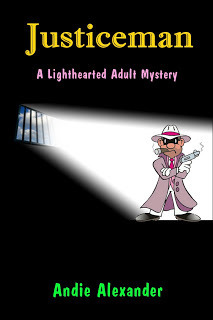 Hello Markee, please tell us about you, as a writer.
Hello Markee, please tell us about you, as a writer.I live in Wisconsin, in the USA, about five miles fromLambeau Field (those of you who know about the Packers Football Team willrecognize the name). Some people thinkI'm male, but I'm a female, married, and my husband and I have threeteenagers. No, we don't own them, andare waiting for all of them to leave for college. I write under a few pen names, but this one,Markee Anderson, is for my romances. Itlets me be me, as an indie writer. I'vejust added books to my pen name 'Andie Alexander' for my mysteries/adventures.
Your latest book Justiceman isa light hearted adult mystery;perhaps you'd you give us some insight into it in a few sentences.
The last book I indie published was a mystery,entitled 'Justiceman.' It's a funny bookabout weird criminals, including a vigilante killer who calls himself'Justiceman.' He's after the maincharacter, Aspen Dove, who is a woman of many talents. She teams up with an FBI agent who likes toplay head games. It was a lot of fun towrite, because I wanted to be as creative as possible for the criminals, givingthem the weirdest characteristics I could think of. As with all my books, there is romance, butit's just fun, with no sex (we have three teenagers who don't need anysuggestions put in their brains from my books) and no swearing.
How did you come to write this particular book?
I read Janet Evanovich's Stephanie Plum books, tryingto figure out how she creates her characters. For 'Justiceman,' I let my brain go nuts, thinking of outlandish peoplewith few brain cells (they're the most fun to write) as well as giving the booka plot of Aspen trying to figure out who the vigilante killer really is.
Do you have a favourite character from the book? If so, who and why thisparticular one?
I have to think that Elmo Flow is my favouritecharacter (although, there are a ton of close seconds). This guy is missing more than a few braincells. He calls himself the 'Lone Wolf'thinking it's an anagram to his name...but there's no 'n' in his realname. So he tells the FBI agent to takehim in for impersonating himself. Atleast the Lone Wolf, who eats people, will be taken off the streets for impersonatinghimself. LOL! That character cracks me up!
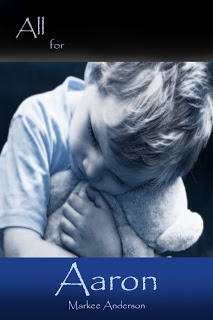 Where can people buy your books?
Where can people buy your books?My books are on Amazon.co.uk, Smashwords, and variousother outlets under the names Andie Alexander and Markee Anderson. I have all buy links on my website at www.markeeanderson.com and www.andiealexander.com.
What qualities does a writer need to be successful?
Perseverance. That's the number one quality. Somany people say they're going to write a book, but never get past pageone. I've been writing seriously sinceabout 2000, and finally got an agent—and just terminated that contract in July,finally going completely indie. It tookme a while to see what publishers really wanted. But if you can write the best book you can,then learn more and edit (a lot), you're bound to make it someday.
What's your working method?
I write with an idea of where I'm headed, then usuallygo off in a different direction. :) I get the first draft done, and go back andedit a lot, to see what plot holes I have. I don't like writing description, so after the first draft is when I addin those things that slow down the pacing.
What's the single biggest mistake made by beginner writers?
Giving up and not learning how to write. Wait. That's two. My bachelor's degreeis in math, and I should know how to count, but both of those things areequally important.
To what extent are grammar and spelling important in writing?
Grammar is very important, however, if the plot orcharacters are weak, who cares about grammar and spelling? I think readers pick up books to escape intoa story, which had better be good or the book is history.
How much do you revise your MS before sending it off?
I revise literally hundreds of times (or so itseems...I've never counted). Each time,I find better ways to say things. Nomatter how many times I've been through a manuscript, I, like every otherwriter I know, finds grammar and/or spelling errors. It happens to everyone. I also use an editor friend of mine to help,and even she misses errors. She's verythorough, too, not only going through the manuscript once, but also goingthrough it backward (yes, in reverse...people in America drop the final 's' tothose pesky '-ward' words), as well as reading it aloud to her husband andcats. And we STILL miss things.
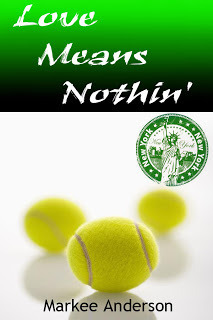 As a writer of romance and mystery, to what extent do you think genre isuseful in the publishing world?
As a writer of romance and mystery, to what extent do you think genre isuseful in the publishing world?I forget what exact percentage of books sold areromances, but it's high, like over 40%. Women love to be whisked away by a wonderful man who can handleanything. I keep telling my husband hecould learn a LOT by reading some of those romances, because once men realizewhat women are really looking for, they could be golden. He refuses. He reads one line, and breaks out laughing. Men don't behave like that, he tells me. So I'm teaching him that romances AREimportant. Now I just have to open hisears and eyes to believe it.
Many authors see marketing as a bind. What's your opinion on this, andhow do you deal with it?
Marketing is really tough. I haven't figured it all out yet, but I'm ontwitter, Facebook, blogging, and even started an e-zine with contests to try toget my name out there. I've even put my bookson great blogs, which did help. I wishthere was one place where every reader checked to find books and my books wereat the top all the time. But Idream. LOL!
What sort of displacement activities keep you from writing?
Kids. Family. Kids home all summer andbored. Kids learning to drive (yeah, I'mthere with the last one right now). Doyou see a pattern? LOL!!!
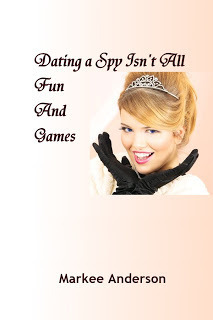 What support, if any, do you receive from family and friends, or awriting group?
What support, if any, do you receive from family and friends, or awriting group?I have a few close friends and my editing friend whoare a wonderful support group. My familymembers don't want to read my books, but just have their hands out for myroyalties. I just laugh at them...we'llsee who gets the money. But my friendsare my biggest support group. I used tobe in writing groups, but many times, they'd get hung up on stupid things withtheir egos and jealousy, so I dropped out. My time is valuable, and they worried about the colour of drapes intheir descriptions. Go figure.
Is presentation of the MS as important as agents and publishers suggest?
The manuscript for agents and publishers is differentfrom indie manuscripts. With agents andpublishers, every detail has to be perfect, or they throw it off theirdesk. But for indie publishing, just thecompanies who publish your book care (like Amazon and Barnes & Noble). It's more important that you have a goodcover and a title, plot, and characters. The cover and title are the 'curb appeal' just like in selling ahome. The blurb is also important,because readers want to know how scary or fun the book's going to be. And the plot and characters bring readersback. So it depends on whom you'retrying to impress.
How long does it take you to write a novel?
I've written a full-length novel in as little as aweek, then taken another week or two to edit and fix it up. It depends on the story. If I know what I want to cover before I write,it's quick. I can write between10,000-12,000 words a day if inspired. Ican also take a few days to think about it, and play computer games instead.
Who or what inspires your writing?
My writing comes from my head, which can be a reallyscary place to visit (tours start in two hours, if anyone's interested). I write so I can make money to put my kids incollege, so they can be independent and live on their own. I also write because I can't NOT write. These characters just take over my thoughts alot of the time, which can be really scary. When they start a meeting in my head without me knowing, along with awhiteboard and a conference room, then I know it's time to pay them someattention.
If there's a single aspect of writing you find frustrating, what is it?
Marketing. I'mjust not good at it. I like to write,but telling others to buy my book is out of my realm. I also don't like speaking in front ofpeople, even though I used to teach high school math. I consider that part of marketing. I just like to write and wish someone elsewould do all the marketing/tough work.
Is there a particular feature of writing that you really enjoy?
Being creative on the pages. I love it when something works even if it'sway out there to most people. I alsolike doing research for different places, and most of the time, I create a townin the area so no one can get angry with me for never being there before.
Do you believe creative writing is a natural gift or an acquired skill?
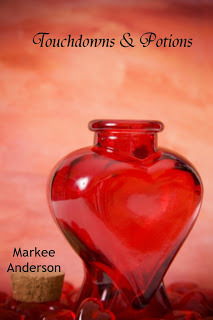 Definitely an acquired skill. When I was in fourth grade, the teacher saidI had no creativity and would never do anything with my life. I wish I could find that guy and let him haveit. If someone has the determination todo something, they can do it, regardless of what some fourth grade teachersays, stifling that student for years.
Definitely an acquired skill. When I was in fourth grade, the teacher saidI had no creativity and would never do anything with my life. I wish I could find that guy and let him haveit. If someone has the determination todo something, they can do it, regardless of what some fourth grade teachersays, stifling that student for years.What are you writing now?
I just published two books... 'Ruled a Suicide' and'Justiceman.' My agent contract endsmid-September, then I have ideas on publishing the 40+ unpublished manuscriptson my computer. I also have ideas onwriting more YA books, under yet a different pen name. So right now, I'm editing, writing in my head,and dealing with kids and their angst. Ithink I need a vacation...hmmm...the U.K. is sounding like a lot of fun rightnow. LOL!
Do you have a website or blog where readers can visit?
Yes. Everythingis listed at http://www.markeeanderson.com and http://www.andiealexander.com. For Markee, I have a blog, an e-zine (onlinemagazine), and I'm on twitter and Facebook. For Andie, I'm on twitter and Facebook. Eventually, I'll have four pen names but that's in the future.
Given unlimited resources, where would you do your writing?
I'd be in an office with floor-to-ceiling glasswindowed walls, overlooking the beach. Can you imagine? There would behot men in bathing suits walking the beach and winking at me all day long! Oh wait...don't tell my husband. He'd want to watch the bikini-clad women Idon't like. Oh...I know...I'd make it amale-only beach just for my entertainment. :)
Where do you actually write?
You won't believe this one. I write on my bed. It's the ONLY place in my house that's allmine and no one will touch. I sit with abackrest and have the TV on all day long so I don't hear the house settling orthe dog barking or our rabbit eating in his cage (a lion head rabbit with MAJORattitude). Noises when I'm alone scareme, as does the news on TV, but I take the lesser of two evils—the TV. See why I want an office overlooking thebeach?
Thank you SO much for this interview! I had a lot of fun! I wish you all the best in the U.K.!

Published on September 01, 2011 08:30
Stuart's Daily Word Spot: Sonnet
 Image via Wikipedia
Image via WikipediaSonnet: noun - apoem of fourteen lines with ten syllables, using various formal rhyme schemesand generally having a single theme.
Shakespeare, of course, famously wrote sonnets and I wastempted to simply quote one of his here. However, I thought, as a writer, Ishould try the form myself. So, here's my effort. Let me know what you think,please.
Thanks to
Our thoughts and our ideas on paperExpressed in hope of spreading our beliefsAnd by such methods to be the shaperOf minds that might then reside in reliefsThe like of which they had not yet conceivedIn the frenzy of their dull existenceAs to ancient lore they had still cleavedTheir instruction offering resistanceTo theories so repugnant to their mentorsWho denying truth but selecting liesWould rather listen to those vile stentorsBasing faith on warped and distorted criesThat worship the notion of truth bereft Of proofs and make all honesty mere theft
With thanks to Wordwebfor its extensive collection of synonyms and to the Penguin Rhyming Dictionary; a veritable compendium of poetic possibilities.I'm no poet, and this is the best I could do in the 30minutes I allowed myself for this exercise.

Published on September 01, 2011 07:00
August 31, 2011
Back of the Book Reviews September Extravaganza
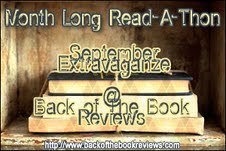 Back of the Book Reviews SeptemberExtravaganza, in which, somewhere along the line, you will have the chance tocompete for a free version of one of my books (I'm giving away 15 copies, sothe chances are good). http://backofthebookreviews.com/contests/september-extravaganza/ Check out the site and participate to have achance.
Back of the Book Reviews SeptemberExtravaganza, in which, somewhere along the line, you will have the chance tocompete for a free version of one of my books (I'm giving away 15 copies, sothe chances are good). http://backofthebookreviews.com/contests/september-extravaganza/ Check out the site and participate to have achance.
Published on August 31, 2011 23:34
Stuart's Daily Word Spot: Notable, noticeable or noteworthy?
 Notable, noticeable or noteworthy?Notable: adjective - deservingof note, especially because of excellence, value, or importance; remarkable,striking, eminent. Noticeable: adjective - able tobe noticed or observed, perceptible; worthy or deserving notice.
Notable, noticeable or noteworthy?Notable: adjective - deservingof note, especially because of excellence, value, or importance; remarkable,striking, eminent. Noticeable: adjective - able tobe noticed or observed, perceptible; worthy or deserving notice. Noteworthy: adjective - worthyof attention, observation, or notice; remarkable.
Another example of English wordsthat are almost synonymous. The differences are subtle, and largely due tousage rather than definition.
Notable is generally used forpeople or events that are unusual.Noteworthy is more usually employedto convey a sense of something commendable.Noticeable, although it can meanthe above, is normally applicable to something that is able to be noticed;something that may be quite ordinary but which is brought to prominence bylocation or context, perhaps.
'Shakespeare was a notable playwright.'
'The bravery of the pilots during the Battle of Britain wasnoteworthy.'
'It was noticeable that Brian had one brown eye and anotherof deepest green.'
Pic: Speckled sunlight.
Published on August 31, 2011 07:00
August 30, 2011
Stuart's Daily Word Spot: Rabble
 Rabble: noun - longseries of words with little meaning or value (SA rather like a lot of modern poetry, then.); pack or swarm ofanimals; mob or disorderly crowd of people; a type of people imagined as gatheredin a mob; people of the lowest class, the common or disorderly part of a population.
Rabble: noun - longseries of words with little meaning or value (SA rather like a lot of modern poetry, then.); pack or swarm ofanimals; mob or disorderly crowd of people; a type of people imagined as gatheredin a mob; people of the lowest class, the common or disorderly part of a population.'As Denise stepped out of the archway, she came face to facewith a rabble and was forced to retreat in order to avoid being crushed by theonrushing mob.'
'At the dog fight, the rabble gathered round, cursing andyelling encouragement to the poor beasts in the pit, forced to fight each otherto earn money for their masters and the idiotic punters.'
Pic: Staithes harbour, North Yorkshire.
Published on August 30, 2011 07:00



